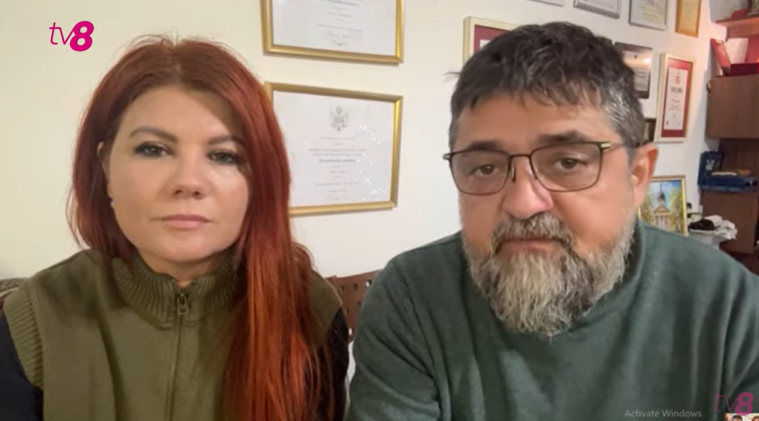New York, February 12, 2024—CPJ condemns the recent detention of Moldovan journalists Viorica Tătaru and Andrei Captarenco in Tiraspol in the country’s east and calls on the authorities in Moldova’s breakaway region of Transnistria to ensure that all journalists can work freely and safely.
On January 24, agents with the Ministry of State Security—the security service of Moldova’s unrecognized, Russia-backed separatist government in Transnistria, detained journalists Tătaru and Captarenco, and took them for questioning, according to multiple media reports and multiple reports by their outlet.
Tătaru, a reporter for the non-profit television network TV8, based in Moldova’s capital Chisinau, and Captarenco, a camera operator and TV producer for the outlet, traveled to Tiraspol to report on a local protest against new customs duties on imported and exported goods. “They were detained after nine minutes of filming the protest and were under constant surveillance even during that brief filming period,” Mihaela Șerpi, a human rights policy analyst at Moldovan human rights organization Promo-LEX, told CPJ via email.
“The detention of journalists Viorica Tătaru and Andrei Captarenco in Tiraspol is symptomatic of the difficulties Moldovan journalists face in covering the breakaway region of Transnistria. This practice must stop,” said Gulnoza Said, CPJ’s Europe and Central Asia program coordinator. “All journalists, including Tătaru and Captarenco, should be able to travel to and report from Transnistria unhindered to keep the public informed of the current situation and local issues.”
Officers of the state security ministry of Transnistria, which also hosts Russian troops, interrogated the two journalists separately in front of a camera and forced them to delete footage of the protest and conversations with protestors, those reports said.
“They were obliged to respond to various questions regarding their opinions about Transnistrian structures, separatism, and the Russian peacekeeping mission,” Șerpi told CPJ.
They were released after three hours and transported to the Transnistrian border, according to their outlet. “Probably to make sure that we leave [Transnistria],” Tătaru said.
On the same day, Moldova’s Prosecutor’s Office for Combating Organized Crime and Special Cases opened an investigation into the journalists’’ “abduction,” which is ongoing, Șerpi told CPJ.
In September 2023, Transnistrian authorities declared Moldovan photojournalist Elena Covalenco “undesirable,” prevented her from covering a soccer game organized by UEFA, the governing body of European football, and imposed a three-year ban on her entry into Transnistria, citing her work as a “major security threat,” Șerpi told CPJ, adding that at least four other journalists had been obstructed or detained for several hours while reporting in the region over the recent years.
“In Moldova’s Transnistrian region, journalists are unable to freely seek and convey information without jeopardizing their safety. They face over-regulation, systematic surveillance, confiscation of equipment, and harassment when trying to exercise freedom of speech,” Șerpi told CPJ. “What’s more concerning is that, since 1992, no one has been held accountable for mistreating both national and foreign journalists in the region.”
Moldova’s Bureau for Reintegration Policies, a government body that oversees the negotiation process on the Transnistrian conflict, told CPJ via email that it had “urgently initiated actions…upon learning about the illegal detention of [the journalists] by the representatives of the alleged law enforcement structures in the Transnistrian region.”
The bureau added that they will continue to monitor the situation and draw attention from external partners to ensure the “professional rights of journalists to freely carry out their activities throughout the country.”
CPJ emailed the Ministry of State Security for comment but did not immediately receive any reply.
